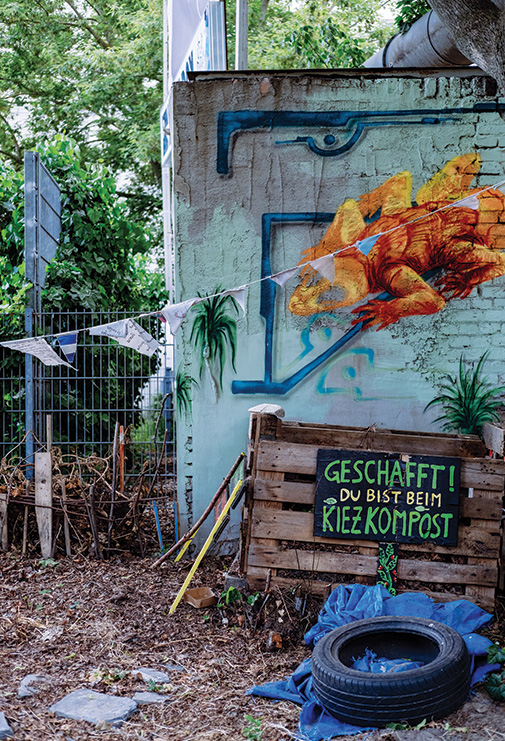- Vol. 09
- Chapter 07

THE CONSTANT GARDENERS
On our smallholding, deep in an Area of Outstanding Natural Beauty, in the heart of the North Pennines, two large composting frames behind the polytunnel accommodate garden and kitchen waste. Every few years, beneath the fresher detritus on the heap top, I rummage down to rich compost, which I harvest for the new patch of potatoes.
Charles Dowding here in the UK seems to have been most instrumental in popularising the ‘no-dig’ philosophy of gardening, and I’ve been a convert. I’ve also alternated our fifty square meter patches, yearly, between our scratching chickens and the tattie bed. For as long as our neighbour’s horse has been on the adjoining field, his plops have supplemented the top dressing of the patches. Our potatoes have been regular winners at the local agricultural show.
But this spring, I laid out the last of my potato plantings. This year we’re in an ongoing mini-move, a downsizing adventure, north of the border into a small village in Scotland. There’s no room for composting in the footprint of the teeny-tiny bungalow we’ve taken on. Instead, the bin collectors are the recipients of our minimal food waste, wrapped tidily for disposal in a landfill site somewhere.
As heartbreaking as it is, the simple fact is that we’re growing older, and increasingly frail. We were in our adult prime, at the end of our thirties, when we moved to the remote smallholding, and now we’re well into retirement. It’s time to recognise something of the inevitable, as our bodies begin to break down.
THE CONSTANT GARDENERS
We drove out of the small village we’ve retreated to, and up a farm track at the back of the local estate, to a large walled garden that’s become a community enterprise. Convinced there would be composting strategies in place there, we were not mistaken. But we weren’t expecting to see a composting toilet tucked neatly in the corner of the garden, nor an ancient orchard, nor flowering bulbs and a large section of soft fruit bushes, along with the over-wintered kale and new vegetables sprouting in neat beds.
A local farmer met us as we were returning from our perambulation, and we chatted about the activity in the walled garden. I mentioned that we’d been impressed by the industriousness exhibited within the walls; he sucked his teeth and chuckled. He might be surprised if I show up on my bicycle to help out, one day, with our little pot of organic waste.
I don’t know if we’ll find any pleasure in sharing some of the allotment space, as we settle in here, or if we’ll content ourselves with perennial flowering plants, a few boxes of herbs and some salad greens on our small deck. We’ll continue gardening, if only as dilettantes, for as long as we’re able.
And then, to be perfectly frank, when our time comes, our bodies will likely be found composting up in the woodland site back home, underneath a couple of trees.
